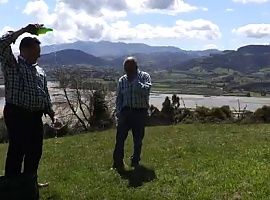Sub-Regional Seminar, Addis Ababa, Ethiopia, 28-30 September 2011
Increasing access to basic education – especially for the most vulnerable. This is the objective of policies to reduce household costs of education that many countries have introduced or are currently considering. How successful have these efforts been? What lessons can be learned?
Since 2009, IIEP has carried out a series of studies on household expenditure for education and fee-free policies. In close partnership with the Ministries of Education, the Institute undertook studies in Burkina Faso, Ethiopia, Lesotho, Republic of the Congo, and United Republic of Tanzania.
Trigger debates on the issue of reducing the economic barrier to education
IIEP will present its latest findings at the United Nations Conference Centre, Economic Commission for Africa, from 28 to 30 September 2011, in Addis Ababa, Ethiopia. Sixty participants – decision-makers, planners and researchers representing some twenty countries in Southern and Eastern Africa, along with representatives from international organizations – will attend the meeting.
The goal is to share experience in policy-making and strategies concerning household spending and fee-free policies in the sub-region.
IIEP previously organized a regional seminar on these issues, in October 2010 in Ouagadougou, Burkina Faso, for Western and Central Africa.
Programme | ||
|---|---|---|
|
Day 1 : Household expenditure and economical barriers to access education | ||
|
|
Morning |
National experiences (presentation by participants) |
|
|
Afternoon |
- Households expenditure in Burkina Faso and Congo (presentation by IIEP) |
|
Day 2 : Fee-free policies for basic education | ||
|
|
Morning |
National experiences (presentation by participants) |
|
|
Afternoon |
- Fee-free policies in Lesotho and Tanzania (presentation by IIEP) |
|
Day 3 : Debate on fee-free policies | ||
|
|
Morning |
- How to design a fee-free policy |
FOTO: © UNESCO / Niamh Burke - School children in class in Ethiopia




















